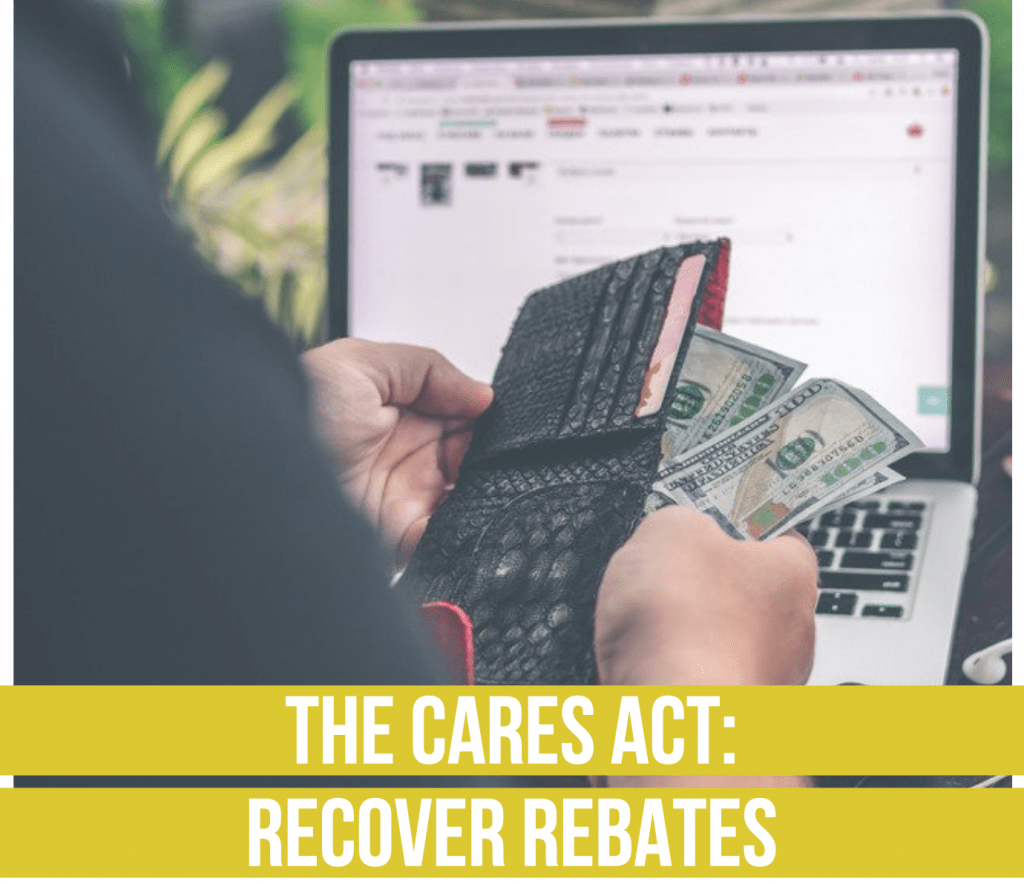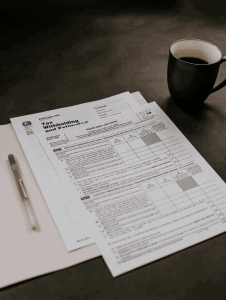CARES Act: Recovery Rebates
by Financial Design Studio, Inc. / March 31, 2020
CARES Act: Recovery Rebates
CH.R. 748 (CARES Act) Bill Provisions
Over the past few days, we have read through the H.R. 748 (CARES Act) bill and there are some specific items we think you could benefit from, if your short term finances could use the help. Even longer-term there are some items that will affect you.
CARES Act Background:
The biggest goal of the CARES Act is to put money in the pockets of the American people quickly.
CARES Act Timing:
The government anticipates people receiving rebates in the next three weeks. (Mid-April 2020)
CARES Act Details:

The most urgent item you should be aware of is a recovery rebate you may be entitled to.
These will be mailed or directly deposited into your bank account that was used on your last tax return filing. If your AGI (Adjusted Gross Income) is above the following thresholds you will notice your rebate will be reduced or completely eliminated. It will be reduced by $5 per $100 your AGI exceeds the applicable amount for your filing status.
The income used will be your most recently filed tax return. If you have not yet filed your 2019 tax return, the 2018 return will be the basis for your income (AGI).
If you have already filed your 2019 return, that will be used. It is unknown what date will be used for choosing what return will be used. So if you have just filed your 2019 return or are hoping to quickly as it would be more beneficial, it is unclear what that date is you need to do it by or if it has already passed.
Filing Status |
AGI Threshold |
Married Filing Jointly |
$150,000 |
Head of Household |
$112,500 |
All Other Filers |
$75,000 |
Once you know that you qualify based on your AGI, you can calculate how much you could expect to receive for your household.
$1,200 per tax filer
For example, Married Filing Jointly = $2,400
$500 for each child a taxpayer has under the age of 17.
For example, two children under age 17 = $1,000
IMPORTANT CARES ACT NOTES:
- If you are concerned that your income was higher in 2018 and 2019, but here in 2020 it is drastically lower because of these uncertain times, you can recapture your rebate when you file your 2020 tax return (in 2021). Unfortunately, you won’t receive it now when you likely need it most, but you will receive it if your annual income stays below the above thresholds by the end of 2020.
- Once you receive your rebate it will not be taken away from you. So if you receive your rebate due to lower income in 2018 or 2019 and then have higher income in 2020 you will not have to repay that rebate back when you file your 2020 tax return. Consider yourself lucky if you’re in this position!
- If you have moved and changed your home address since your last tax filing you should quickly complete and mail Form 8822 to the IRS. If you had your last tax refund deposited or tax owed taken from your bank account it is highly likely that is where you will receive your refund, as a direct deposit. But to be safe, it is always good to have your address up to date with the IRS.
- If you have a child who will be starting to file their own tax return but has not yet, and is not counted on your tax return anymore, they will recapture their own rebate when they complete their 2020 tax return as well, similar to those who have seen their income drop in 2020 and will recapture it at a later date.
- Be watching your bank account and paying attention to your mail so you can notify the IRS if you do not receive yours. A phone number for the IRS will be provided for you to call if you believe you haven’t received yours.
Interested in the other areas of the CARES Act? We are breaking down these details by section in the following resource. You can click to the particular section you’re interested in directly below if you’d like to read the specifics of those first. We do encourage you to look through all of the sections that could potentially impact you since this is a very generous bill aimed at keeping our country’s economy strong during and after this pandemic.
Financial Design Studio CARES Act Summary
Like any benefit that becomes available to you it is critical to see if it makes sense to use the provisions allowed. While a benefit might make your temporary financial situation better, it might not be beneficial in the long term. However, those who need these provisions were created for are likely in immediate need to use the benefits until employment returns to normal.
Individuals:
Coronavirus-Related Retirement Distributions
Enhanced loans from employer retirement plans
Required Minimum Distributions waived for 2020
Qualified Charitable Contributions – NEW Above the line deduction
AGI Limit for Cash Charitable Contributions Limit Temporary Repealed
Miscellaneous Healthcare Benefits
Business Owners:
Paycheck Protection Program & Forgivable Loans
Wondering how this affects your future finances? Schedule a call with Financial Design Studio, financial advisors in Deer Park, to discuss your portfolio today.
VIEW MORE FROM FINANCIAL ADVISORS IN DEER PARK
Ready to take the next step?
Schedule a quick call with our financial advisors.

![Fee Only Financial advisor Deer Park Barrington Chicago [Video] Financial Market Update- The Recovery Continues](https://financialdesignstudio.com/wp-content/uploads/2020/05/Fee-Only-Financial-advisor-Deer-Park-Barrington-Chicago-Video-Financial-Market-Update-The-Recovery-Continues-589x328.png)

